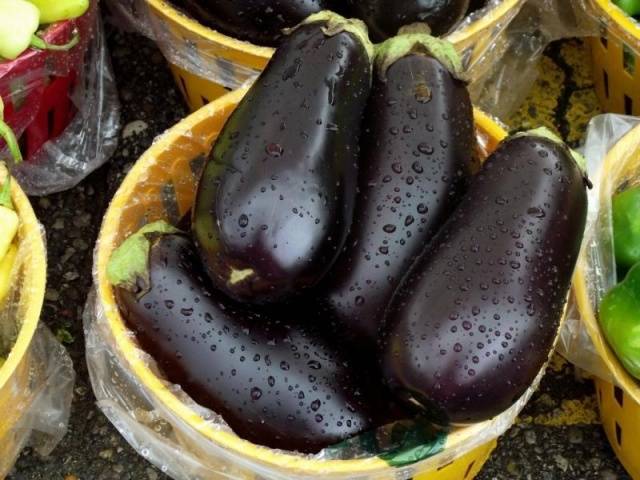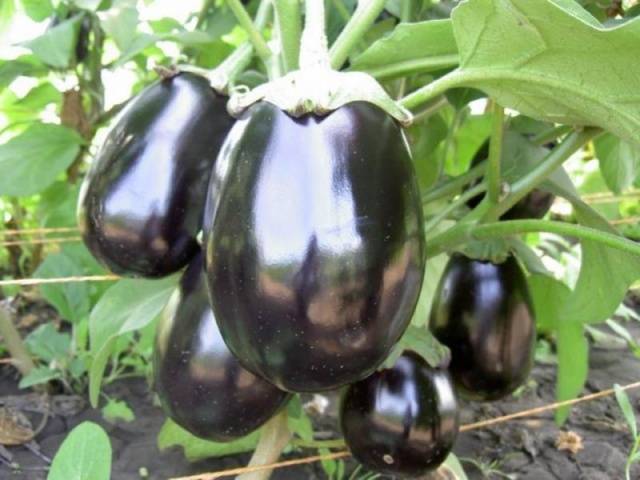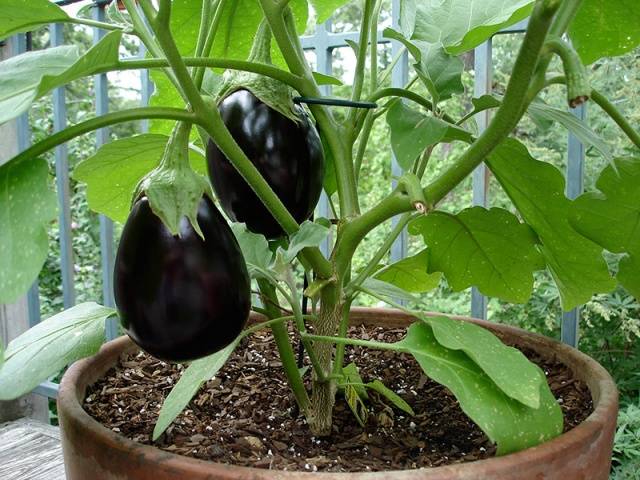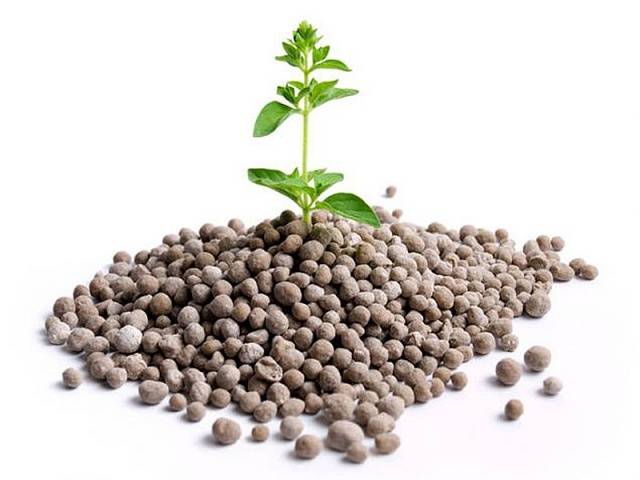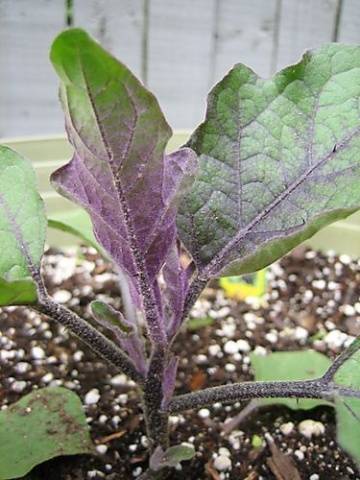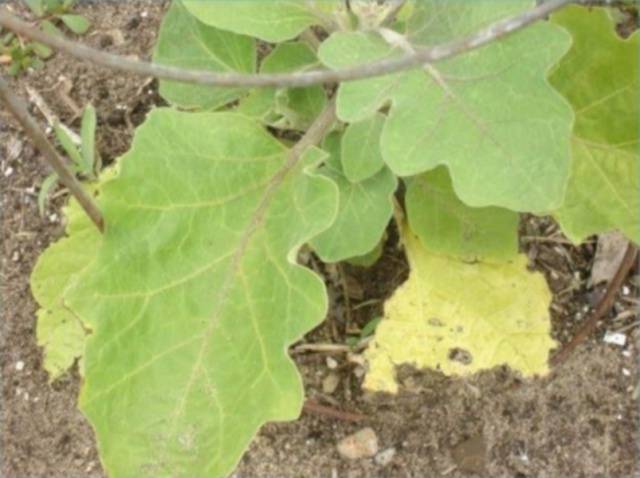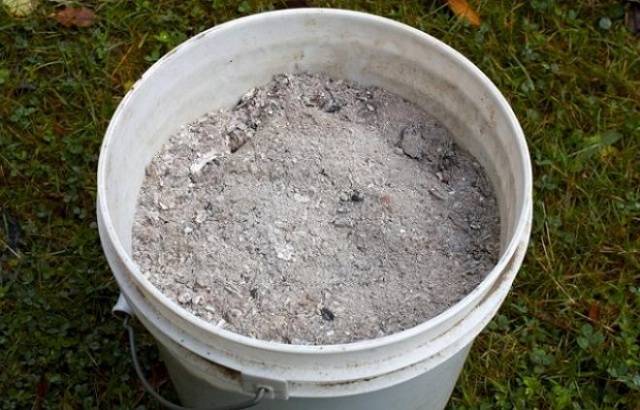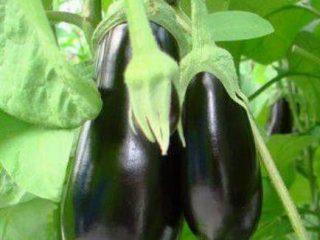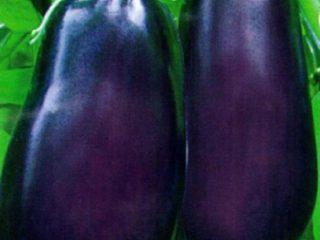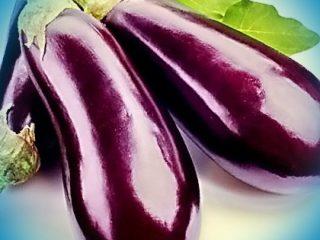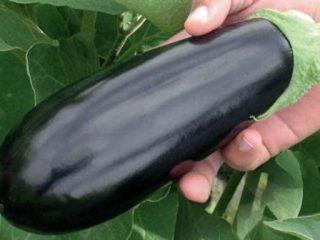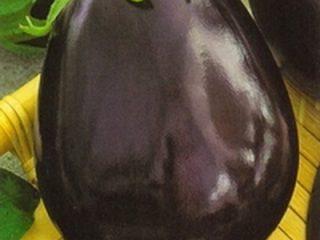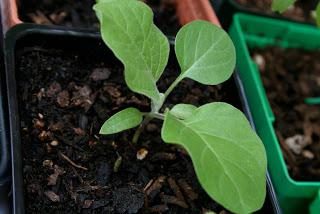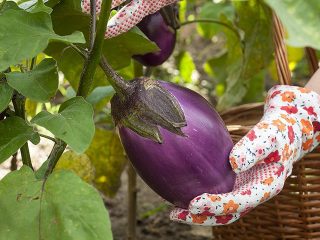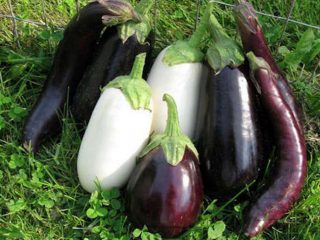Content
It is difficult to overestimate the benefits of natural vegetables, because they contain the maximum amount of useful minerals that are so necessary for the human body. Among all, it is worth noting such a representative as eggplant. It contains a lot of carbohydrates, proteins, glucose, fiber, starch and other elements. At the same time, there are several varieties, which include the Vera species.
In addition, with regular consumption of eggplants, the heart muscle is noticeably strengthened, which minimizes the likelihood of a heart attack. Is it possible to refuse tasty and healthy pickled fruits?!
Description
Eggplant Vera is an early ripening variety and is ideal for those gardeners who do not want to wait a long time for the fruits to ripen. The bushes of the plant are quite compact in size, reaching a height of 73-75 cm. The leaves of the Vera eggplant are medium in size. Their color is traditionally green, but with a purple tint, and the shape is notched. Like most types of Vera eggplant, the bushes of the plants have practically no thorns or they are very sparsely spaced.
The photo tells about eggplants better than the description.
Many gardeners prefer the Vera variety for its characteristic pear-shaped fruit, which is confirmed by many reviews with photos.
Take for example these:
As for the color, Vera eggplants have a thin skin of a purple hue, inside the fruit there is dense flesh, white, and there is no bitterness. The weight of ripened eggplants varies from 125 to 181 grams. In some cases, their weight can reach 304 grams. The number of ripe fruits of the variety may not be as large as that of other species, since approximately 0.9-1.2 kg of harvest can be collected from one square meter. If you're lucky, the weight of the fruit can increase to 3.5 kg.
Peculiarities
The peculiarity of the Vera variety is that eggplants can be grown both in an open area and under a film.
To collect a large number of fruits, it is best to use the first method. Eggplants of the Vera variety are ready for harvest after a certain time has passed. For the Vera variety it is 110-118 days, and the harvest is characterized by good stability.
Landing
You can start sowing seeds in February, but it is better a little later - in May. At this time, the first spring frosts will disappear. As stated above, it is advisable to plant Vera eggplants in open ground. When distributing seeds over the bed, they must be lightly pressed down to a depth of 15-20 mm. And after that they need to be sprinkled with peat or sand. Planted eggplant seeds should be covered with polyethylene until the first shoots appear. This usually happens 15-20 days after sowing the seeds.
Anyone who wants to enjoy the taste of fruits grown in a greenhouse may be interested in the video:
To ensure that Vera eggplant bushes do not interfere with each other during fruit ripening, it is necessary to adhere to a certain planting pattern. The distance between the rows should be 60-65 cm. Directly between the bushes it is necessary to maintain 30-35 cm of free space. There should be no more than 3 bushes per square meter of bed.
The optimal conditions for proper plant growth are an air temperature of 22-24 degrees. The fruits of Eggplant Vera need timely watering and fertilizing, consisting of complex mineral fertilizers, which is mentioned more than once in some reviews.
Additional feeding
Like the human body, the fruits of the Vera eggplant also need not only drink, but also nutrition. Often the reason for a failed harvest is a lack of nutrients in the plant. At the same time, some summer residents do not pay enough attention to this point. Plant nutrition is applied in small quantities or not at all.
However, the application of fertilizers is fraught with nuances.If the plant does not receive enough nutrients, then the fruits are small in size (smaller than average) and there are very few of them. If Vera eggplants are given too much fertilizer, the result can be quite powerful bushes, but practically without fruits. In addition, plants do not tolerate excessive nutrition and low temperature conditions, which leads to the formation of nitrates in eggplant fruits. And this, as we know, does not benefit either plants or people. In other words, everything needs moderation.
Typically, during the entire period, from planting the bushes to the formation of Vera eggplant fruits, it is necessary to apply fertilizer 3 to 5 times. In some cases this should be done more often.
Impact of nutritional deficiencies
Every summer resident needs to know the consequences of an insufficient amount of natural elements:
- Nitrogen. With its obvious deficiency, plants experience a decrease in leaves. Moreover, they acquire a pale green tint, and then most of them fall off. Eggplant fruits may ripen, but they are very small in size. The situation can be corrected by adding ammonium nitrate and bird droppings. The main thing is not to overdo it.
- Phosphorus. This element is simply necessary for the normal development of the root system. Its deficiency is indicated by the characteristic purple-blue color of the plant’s leaves. Only here it is worth knowing that it is necessary to maintain a certain soil temperature, which should be more than 15 degrees. When it decreases, phosphorus will not be absorbed by plants.
- Potassium. Another important element of the periodic table, which is necessary for Vera eggplants at the beginning of the fruiting period.Its deficiency can occur if plants are grown in peat or sandy soil. This is especially acute in dry weather conditions. A characteristic sign may be yellowing of the leaves of the plant, the edges of which begin to dry out. At the same time, the Vera eggplant fruits themselves begin to become stained. Timely application of potassium magnesia or ash will avoid troubles and protect the fruits. Potassium sulfate can give a good effect after the plant blooms.
- Calcium. Without this element, it is impossible to achieve a high yield when growing Vera eggplants in soil with a high level of acidity. If there is not enough of it, the plant root system slows down its growth, the buds die, and the contours of the leaves are “decorated” with white stripes. To compensate for the loss of fruits, you need to apply fertilizer based on calcium nitrate or spray the plants using calcium chloride.
- Bor. A deficiency of this element is often found in wetlands. The flowers of the plant lose their ability to pollinate and after a while begin to fall off, which leads to a significant reduction in fruits. Timely application of borax or spraying with boric acid will help correct the situation.
- Magnesium. When a plant lacks this element, colorless veins can be seen on the leaves. The recommended amount of potassium magnesium or ash will help prevent this.
- Manganese. If the soil contains alkali and there is a lot of humus in it, then the lack of the element is a characteristic feature of such land. On the leaves of the plant you can see interesting patterns of yellow spots. Manganese sulfate or spraying with it only in the form of a solution will make up for losses.
Conclusion
Thus, we can understand that eggplants, just like us, need their own set of nutrients, without which normal plant development is impossible. Timely fertilizing along with regular watering will provide summer residents with a rich harvest.
